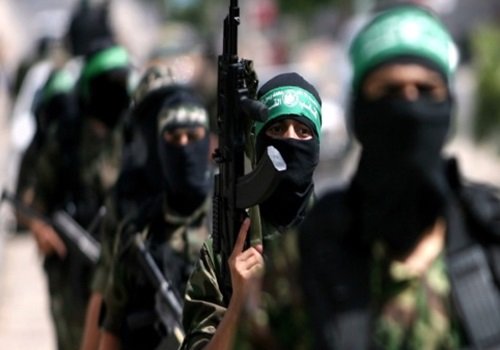By Rubi Khan
A person who possesses strength but does not apply flexibility when necessary, will undoubtedly lose; on the other hand, if they apply power and flexibility quickly, they can pin their opponent to the ground. An alternative interpretation could be “heroic flexibility,” of which the Peace Treaty of Imam Hassan is the most magnificent historical illustration. The Israel-Palestine conflict has long been a cause of tension and unrest in the Middle East, drawing attention from all over the world and evoking strong reactions from different nations. India has always shown support for the Palestinian cause and has a long history of cultural diversity. But this backing begs the question of how Muslims ought to feel about Hamas, the group in charge of the Gaza Strip. The question gains more prominence given the video address by HAMAS leader to a rally organized by Youth Solidarity Movement, in Kerala.
India’s support for Palestine stems from its commitment to the principles of justice, self-determination, and a two-state solution. Even after officially recognizing the State of Palestine in 1988—among the first nations to do so—India has consistently voiced its concerns. It has also supported Palestinian resolutions at the UN and other international forum, as well as helped the Palestinian people financially and humanitarianly. This support takes the form of payments to the United Nations Relief and Works Agency for Palestine Refugees in the Near East (UNRWA), scholarships for Palestinian students, and development initiatives. Hamas’s rule in Gaza has been marked by political divisions and conflict with the Palestinian “Authority, making it challenging to achieve unity among Palestinians, a crucial aspect of any successful peace negotiation. Endorsing a faction devoid of democratic legitimacy erodes the fundamental tenets of democracy and self-governance. In addition to rejecting several peace initiatives, Hamas has refused to acknowledge Israel’s right to exist. Achieving a sustainable peace in the area is hampered by supporting an organization that thwarts peace initiatives. Encouraging Hamas could worsen regional instability and raise the likelihood of violence.
The civilians are always the ones who suffer when non State actors fike HAMAS enters a conflict zone. Organizations like HAMAS ought to understand that this is a fight for human rights rather than a conflict between two factions who are coercively attempting to defend their positions. It is imperative that Muslims and the global community take into account the wider ramifications of endorsing groups such as Hamas. As the Indian government is sympathetic to the Palestinian people’s situation, it is important for Indians, especially Muslims, to promote diplomatic and peaceful solutions rather than engaging with HAMAS, a militia designated as a terrorist organization by the UN. There is no denying the fact that the only solution is peaceful dialogue backed by State actors.
(The author’s Fellow in Journalism and Francophone Studies, Jamia Millia Islamia. His views are personal. It has nothing to do with public records management.)




